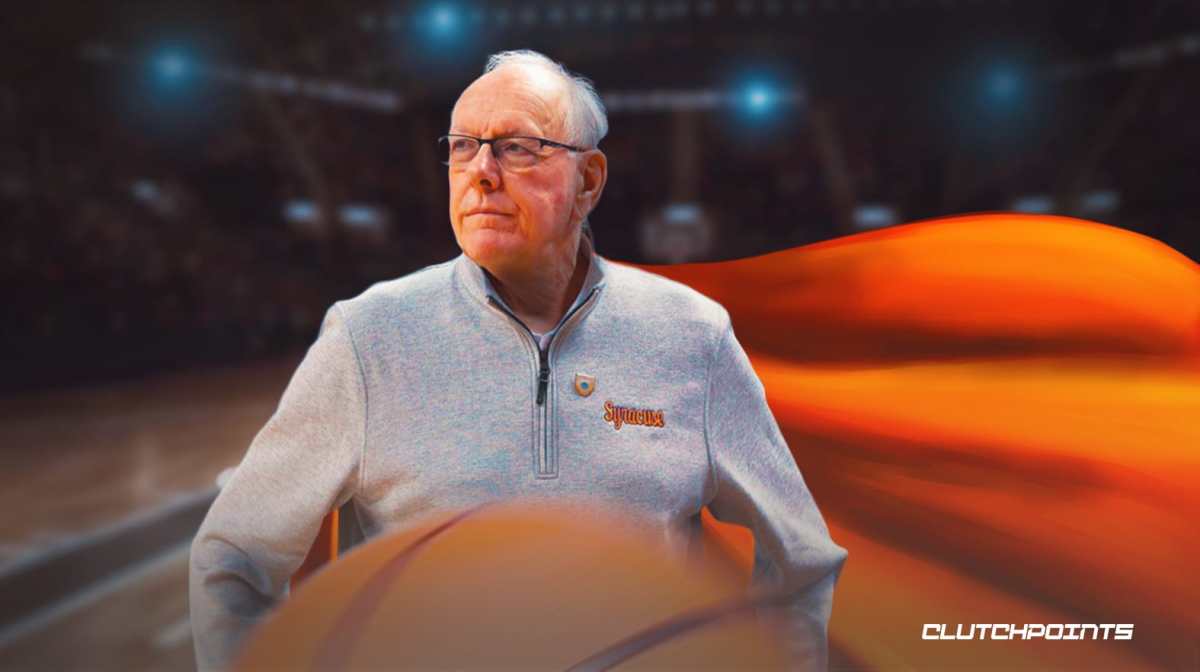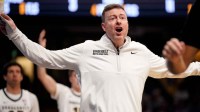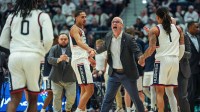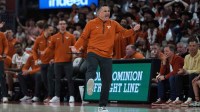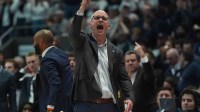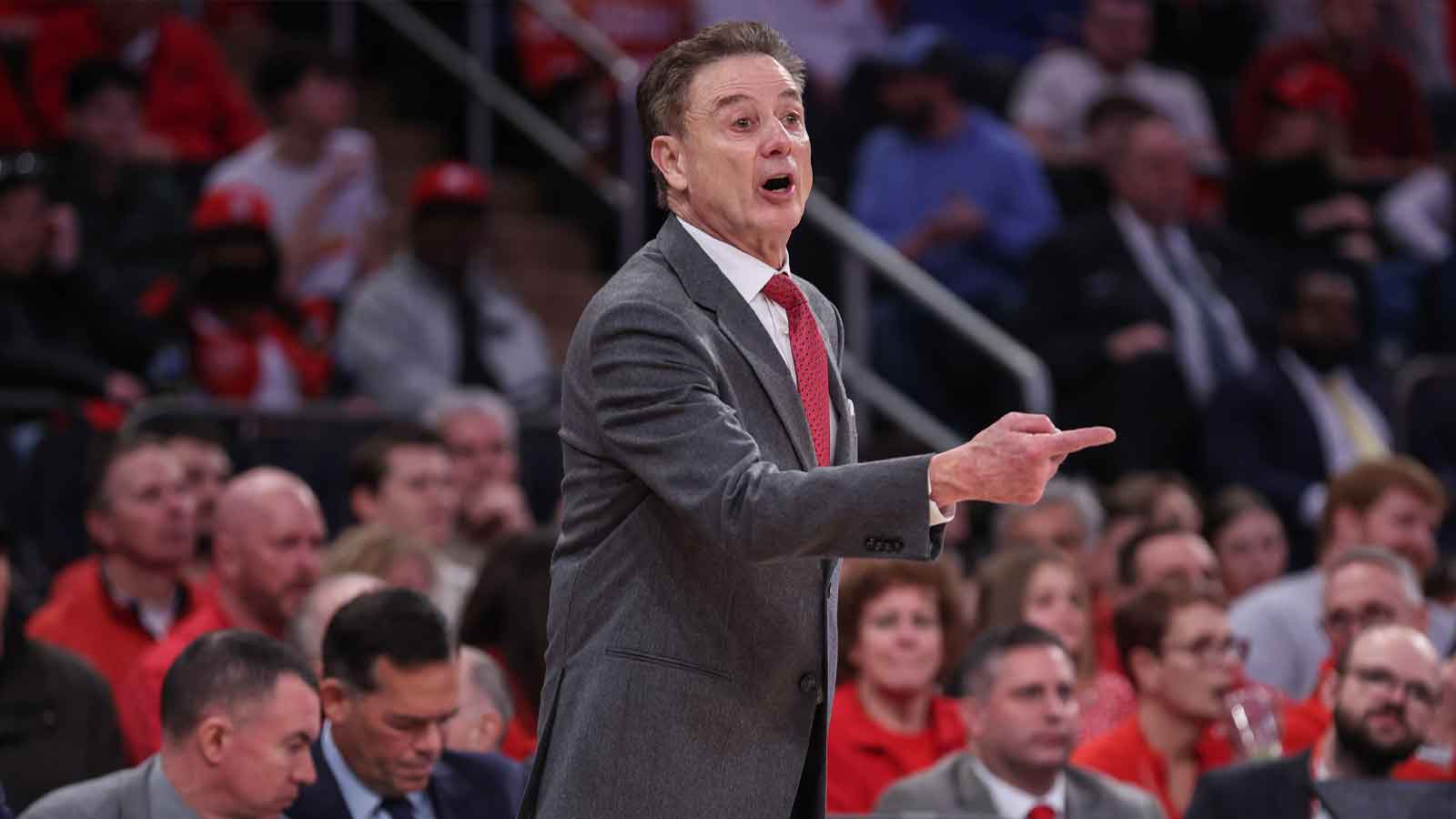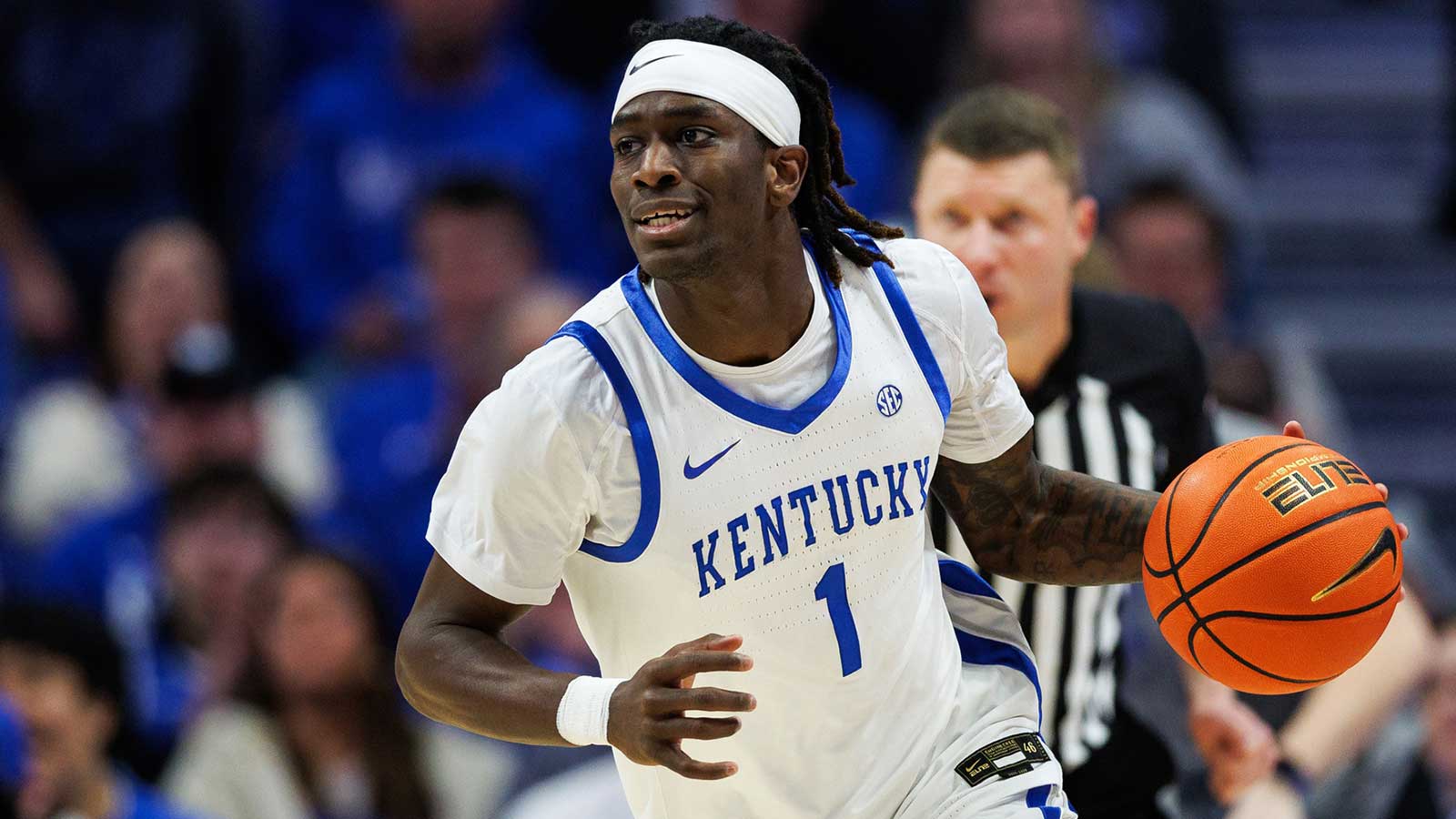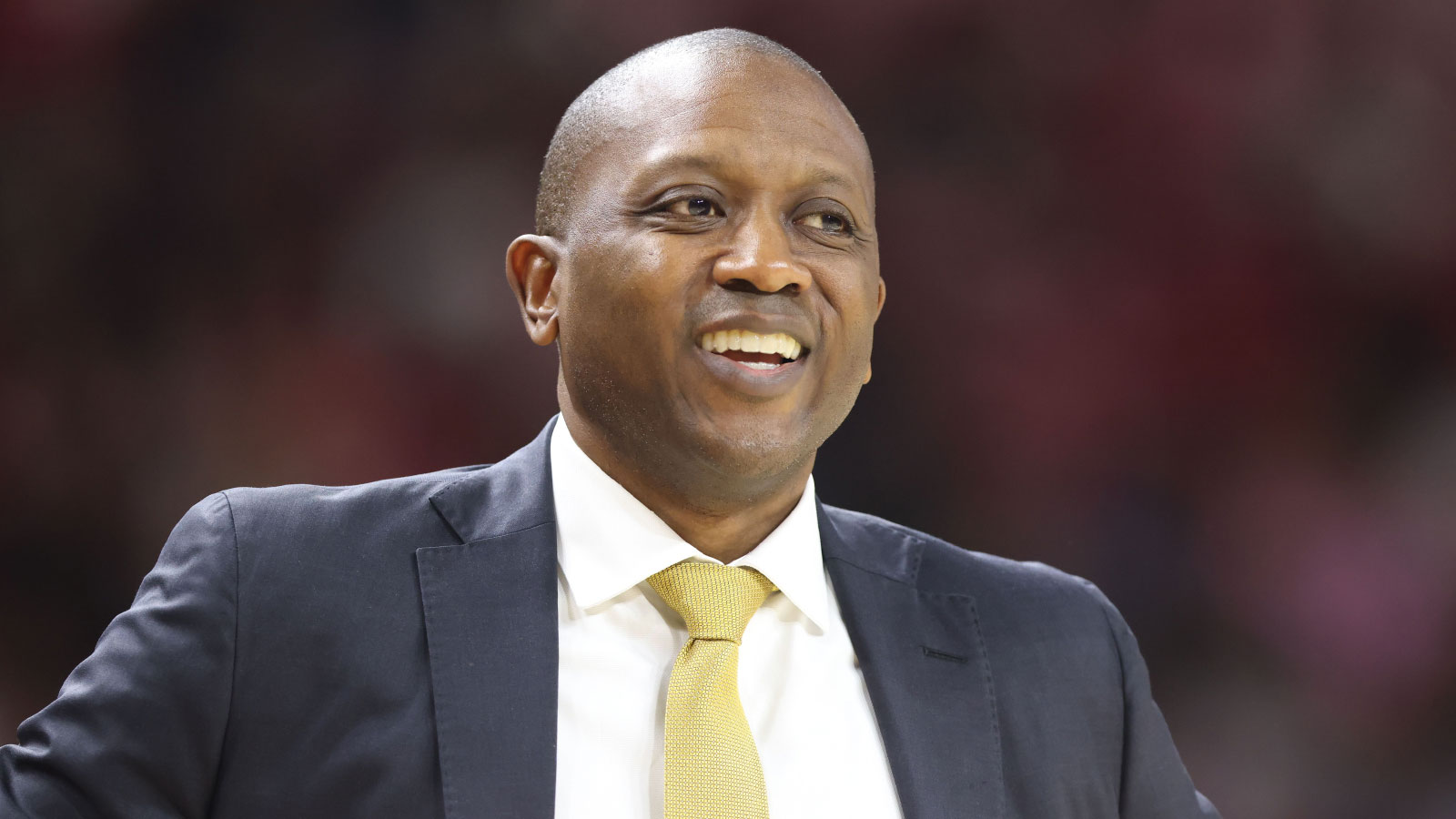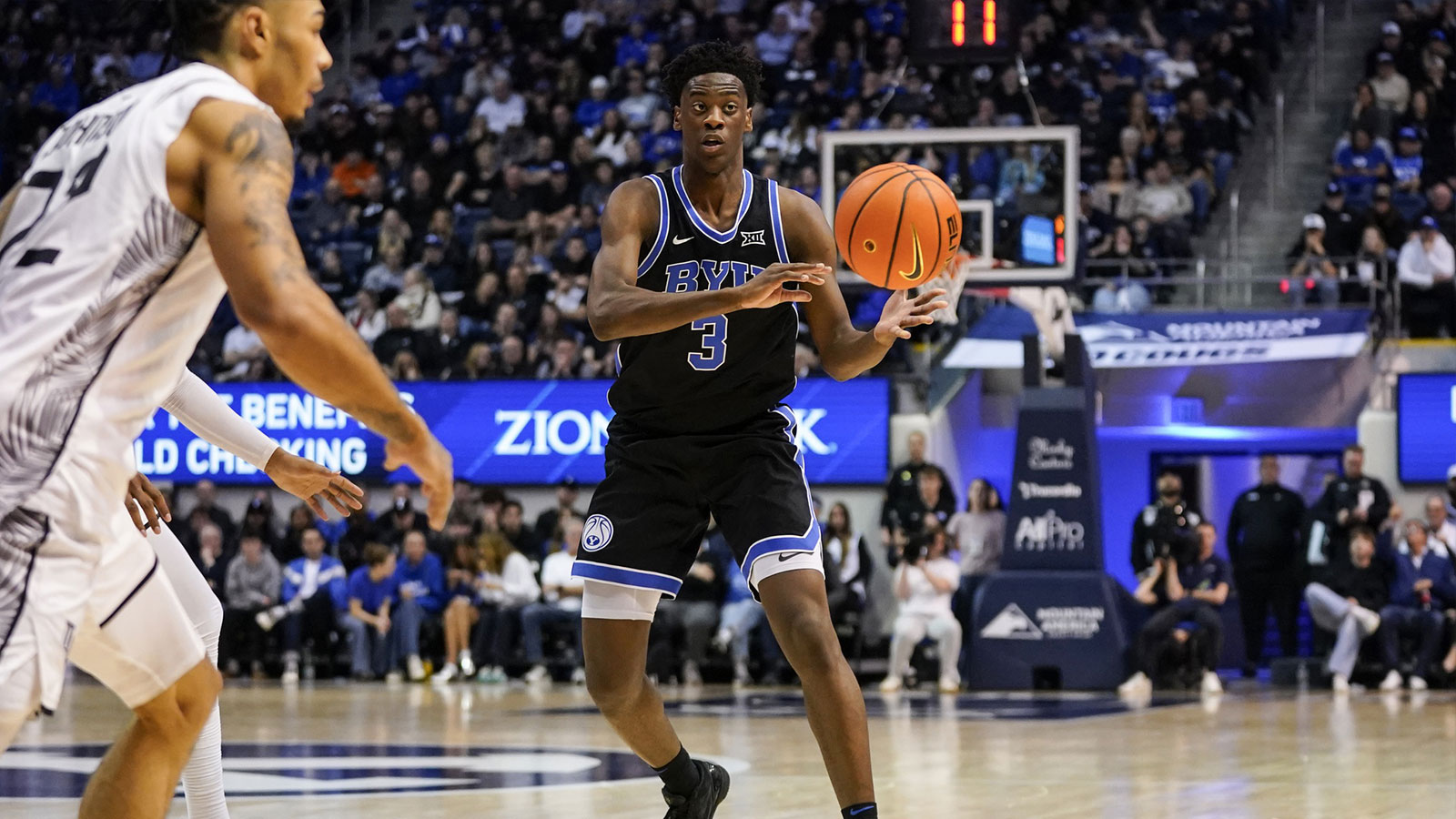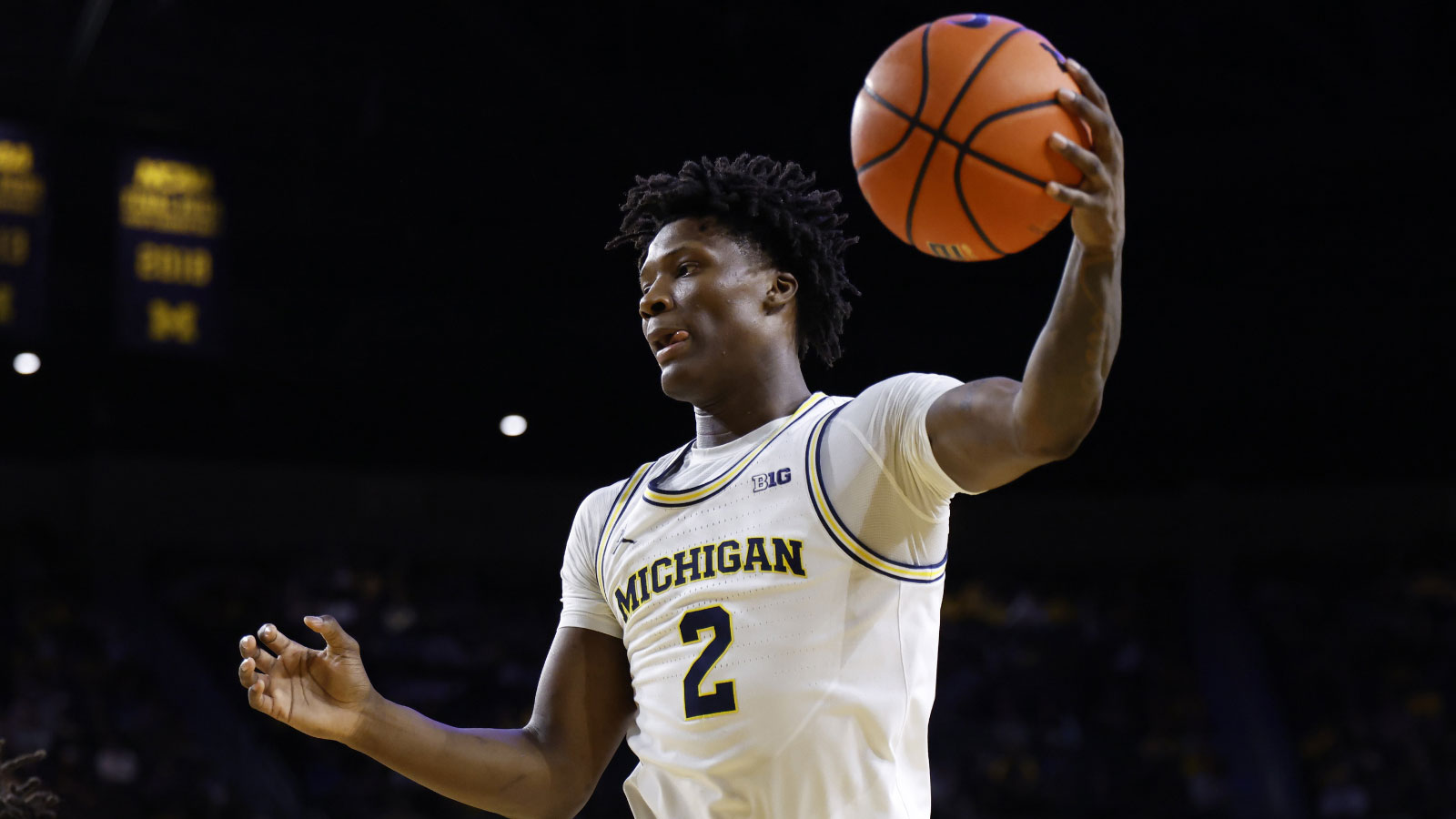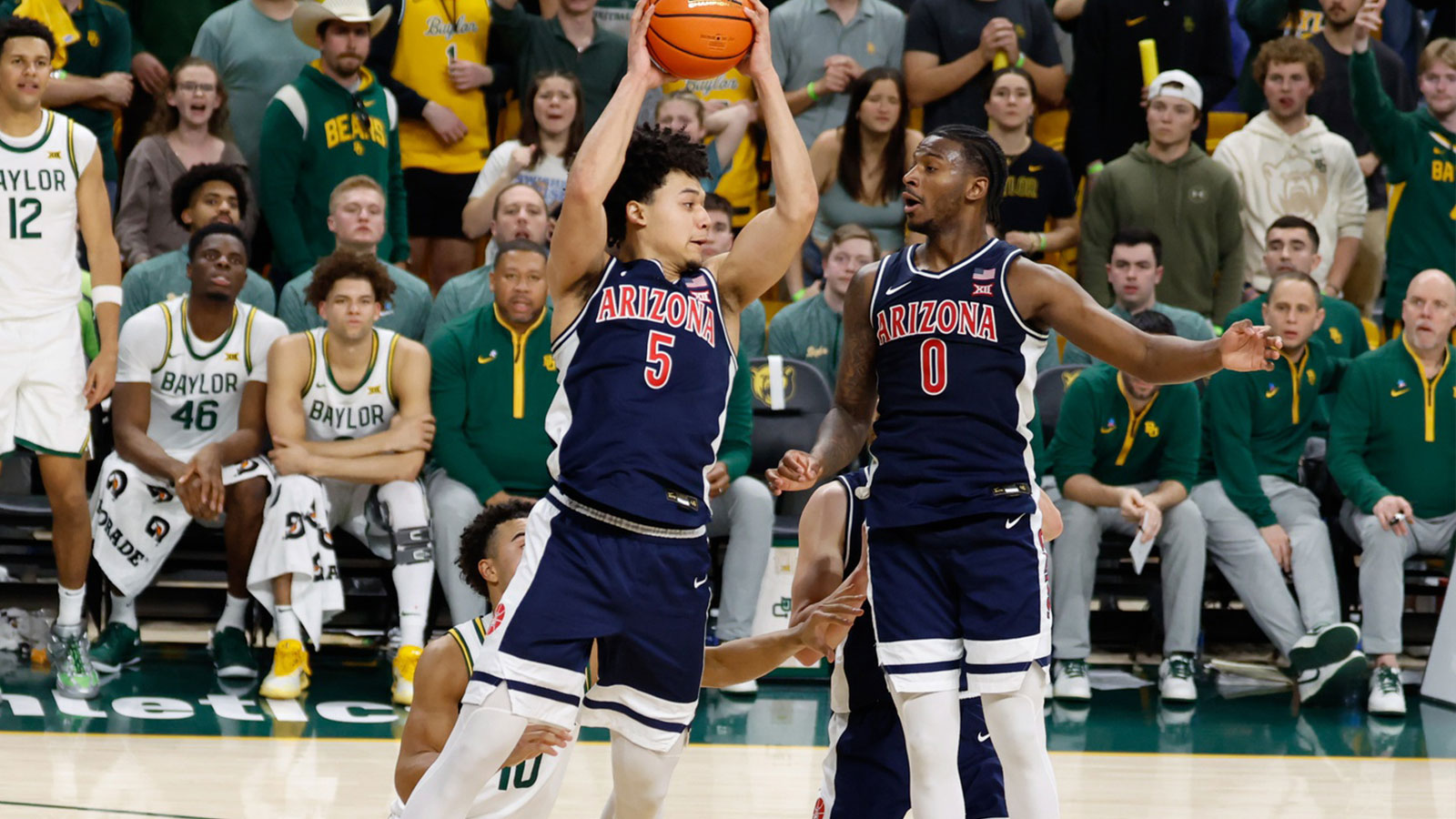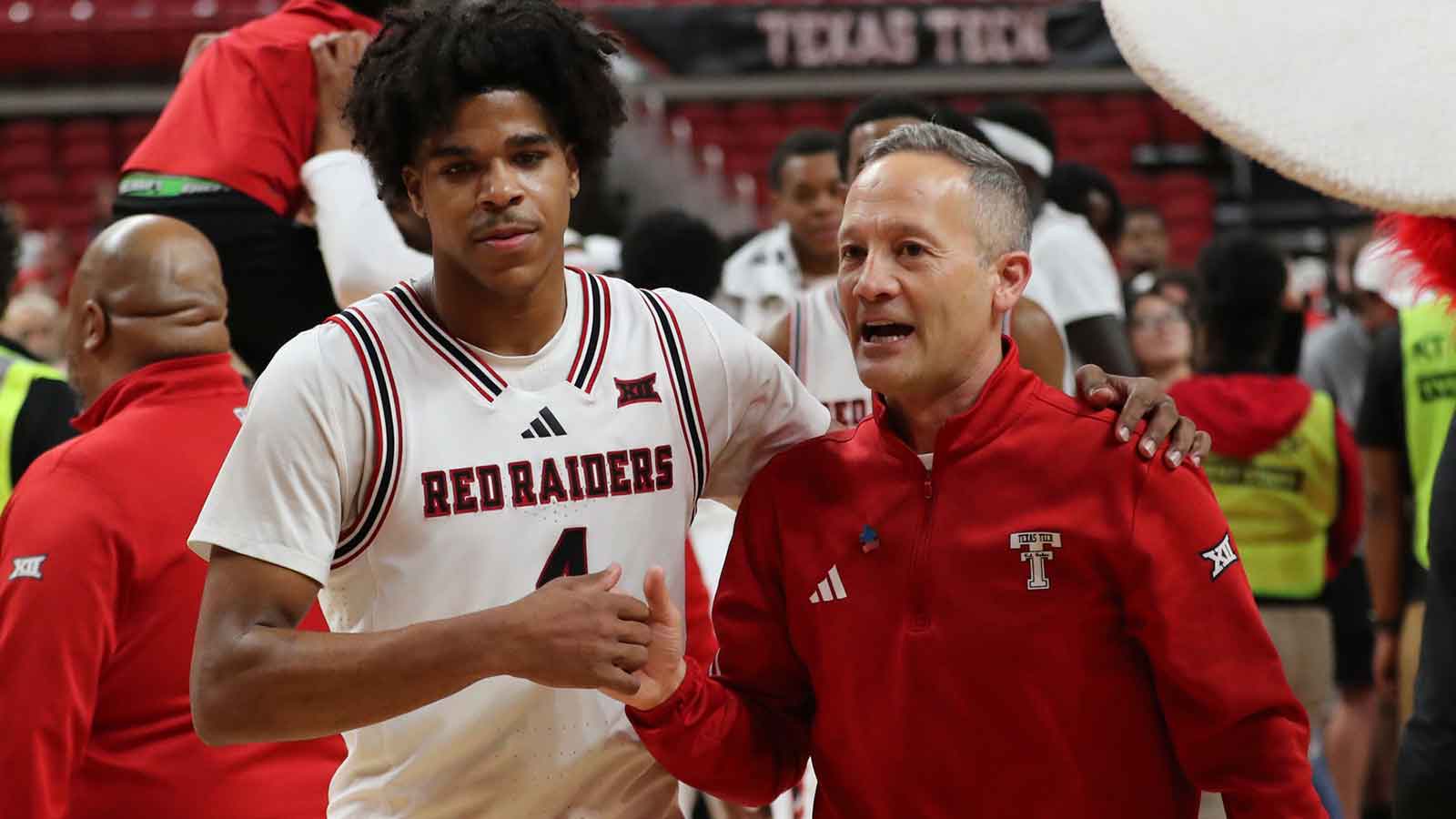In college basketball, there’s a notion that sleep is death, that progress is the only way to stave off regress. The players who stick around for four years are the guys who weren’t good enough to leave after one; the schools that aren’t aggressively hunting larger TV deals are the teams that can’t compete. It’s not that all major college basketball programs are sharks as much as they’re paranoid that everyone else is one. To paraphrase the suddenly mortal Jim Boeheim, that’s the most bullcrap thing he’s ever heard.
In fact, Boeheim’s superpower was endurance. He arrived in Syracuse as a walk-on in 1963 and never left, eventually becoming head coach in 1976. Over his 47 years at Syracuse’s helm, Boeheim won 1,116 games, made 35 NCAA Tournaments, five Final Fours, three national title games and won one championship in 2003.
Whereas other coaches ride a sine wave of natural ups and downs, Boeheim’s excellence was so level and unchanging that people mistook his peaks for valleys. His teams were ranked in the AP Top 25 in 41 of his 47 seasons, totalling over 530 weeks in all, but only spent 17 of those at #1. He sent 46 players to the NBA, yet only two of them (Derrick Coleman and Carmelo Anthony) were All-Stars. When he couldn’t outdo his competitors, he still outlasted them: 16 coaches have more titles than Boeheim, but only one has more wins.
He didn’t dispense nuggets of folksy morality or win 10 national titles like John Wooden. Or despotically stalk the sideline like Bobby Knight, treating basketball as something to be conquered rather than played. Or follow the lead of his good friend Mike Krzyzewski and carry himself like a nasally godhead and stuff his roster full of surefire future NBA All-Stars. Instead, he stacked quotidian goodness until it accumulated into greatness. He stayed.
And, for better or worse, he stayed even when he shouldn’t have. In 2013, when Syracuse bolted from his beloved Big East and subjected him to the horror of going to Greensboro, he grumpily persisted. He endorsed a formal succession plan in 2015 that would have required him to step down in 2018 and then somehow survived longer than his would-be heir and the athletic director who put the plan in place. Once the COVID pandemic made coaching a life-threatening proposition, he merely traded his suit for a quarter-zip and resumed picking his nose under the safety of a mask. Even as recently as last year, he could’ve gracefully stepped aside after a feel-good season coaching his sons, Buddy and Jimmy.
Eventually, though, Boeheim was no longer given the choice to stay. Save for a handful of rousing NCAA Tournament runs (ironically, the exact kind of runs that he was once dinged for not going on), Syracuse basketball has been down bad, last cracking the Top 25 in December 2018 and trudging to Boeheim’s first-ever losing campaign in 2021-2022. More damning, Boeheim seemed to lack the stomach to snap Syracuse out of its gormlessness, refusing to participate in the NIL marketplace to stay competitive.
Accordingly, Boeheim’s quirks became flaws: after all, winning is the only difference between being prickly and being a prick. His pride came across as indignation; his conviction read like inflexibility. As a sad, final twist, his sincere desire to stay was interpreted as a dare to make him leave.
No matter how much people may dislike Boeheim, he deserved far better than the unceremonious exit Syracuse foisted upon him. He's clearly one of the greatest and most important coaches in college basketball history, if not sports history writ large. After taking over for Roy Danforth in 1976, Boeheim quickly turned Syracuse into a powerhouse, which in turn set the table for the Big East to become the center of the college basketball universe, which in turn catalyzed college basketball’s growth from a regional curiosity into a national phenomenon.
It’s easy now to frame his constancy as his fatal flaw, but it was also his strength. Even his trademark 2-3 zone reflects his sensibility. Man-to-man defense is reactive, adjusting and reconfiguring itself in response to the offense. Syracuse’s stifling zone is a testament to the power of standing your ground and doing your job.
Even as he grew into this legendary presence, Boeheim was always a coach’s coach. He loved the things he loved (Syracuse, his job, chicken parm) and didn’t have much patience for the things he didn’t (Denny’s, reporters, referees). Yes, he’s a curmudgeon and a cancer survivor and the son of a mortician and a father, but, at his essence, he was the Syracuse basketball coach. Inside him, there was one wolf.
When he stood on the court that bears his name and barked out instructions to the zone he spent decades perfecting, there was nothing that needed to be reconciled, no cognitive rupture to mend. The joy of Boeheim is that it’s impossible for us to imagine him as anything other than the Syracuse coach. The sadness is that he couldn’t either.

